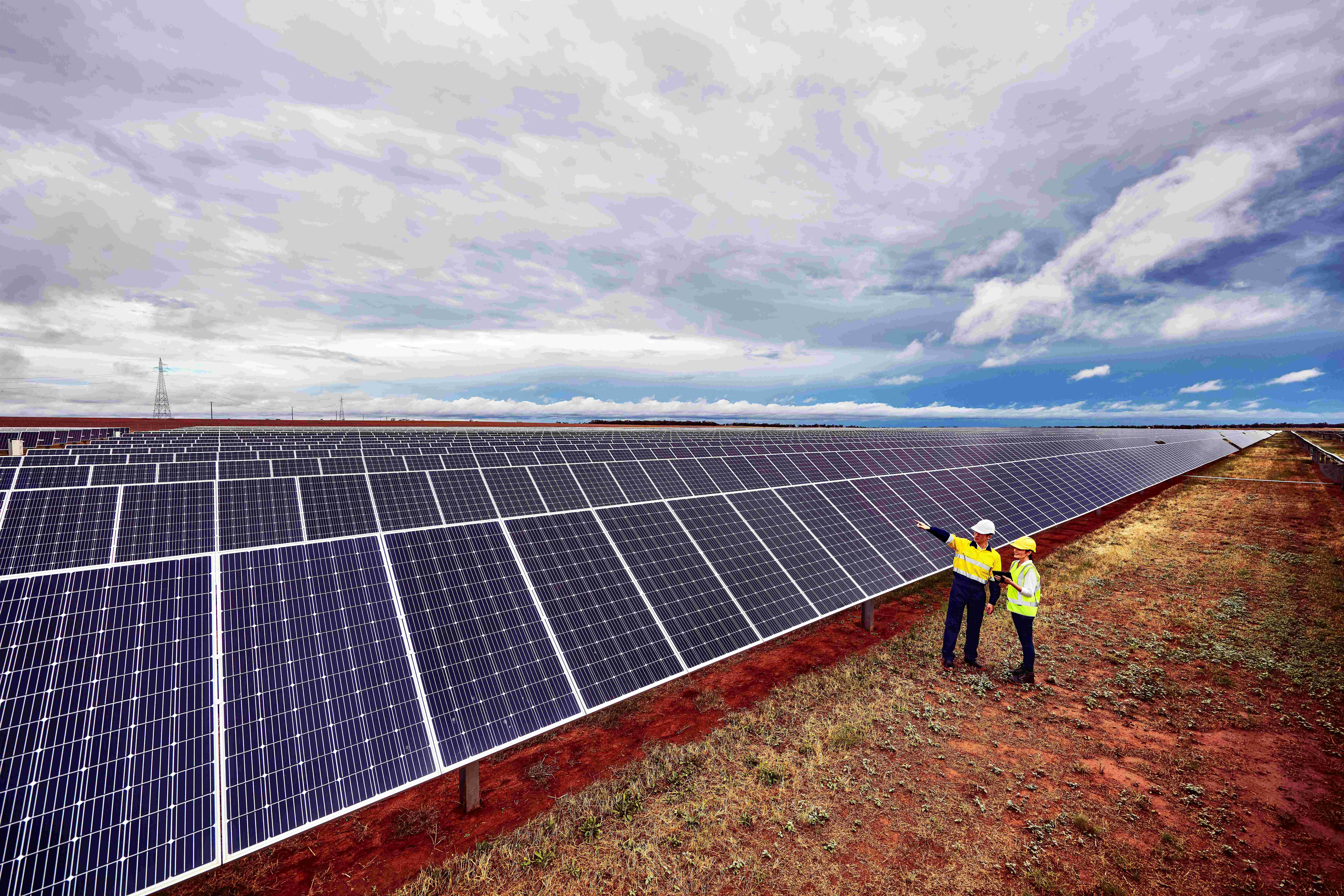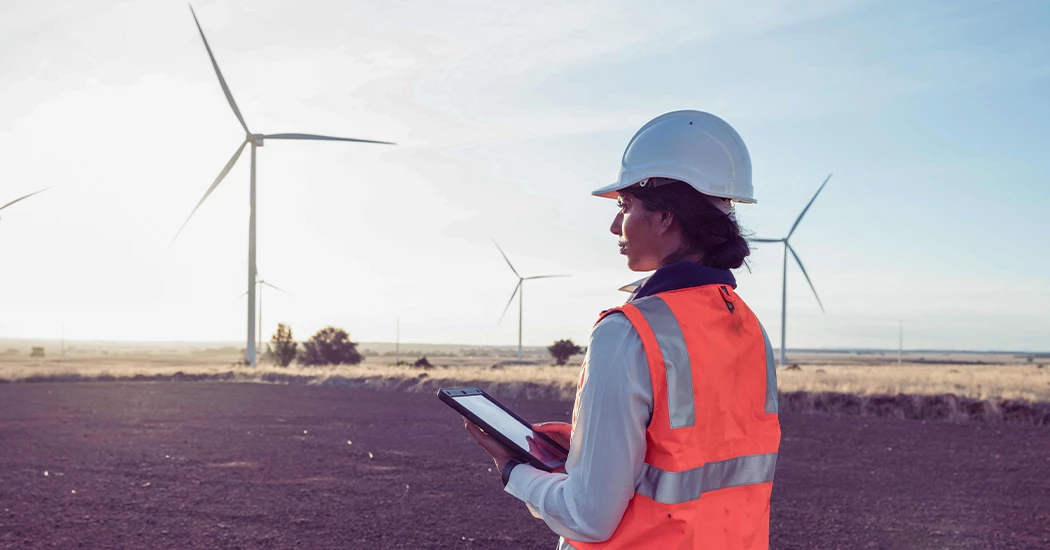Greening the energy sector relies on the transformative power of data-led technologies
The world faces a critical moment. We must balance economic progress with industrial decarbonisation if we are to secure our lives and livelihoods for tomorrow.
To do so, we must focus on greening the energy sector. Energy is deeply linked to economic growth, but also accounts for an estimated three-quarters of total greenhouse gas (GHG) emissions, whose impact is being felt in extreme weather events and food supply disruptions.
Understanding the new green transformation
Decarbonisation is crucial to mitigating climate change. Yet, it also presents the opportunity to green the entire energy value chain.
Industrial decarbonisation involves designing and building new clean energy assets to capitalise on up-and-coming market opportunities. At the same time, existing operations can be optimised for better efficiency and sustainability.
Creating this greener future rests on the transformative power of data-led technologies in combination with human insight.
The World Economic Forum estimates that 70% of new value created in the global economy over the next decade is likely to be based on digitally-enabled business platforms. Existing digital technologies can deliver up to 20% of the reductions in energy consumption needed to achieve the International Energy Agency's 2050 net-zero trajectories. According to forecasts from Accenture and the World Economic Forum, three sectors would benefit the most: the energy, materials, and mobility industries.
Advanced algorithms, artificial intelligence (AI), and data analytics can help to measure and reduce GHG emissions for all kinds of industries, including hard-to-abate sectors such as petrochemicals, steel, and cement. They provide the industrial intelligence that energy business leaders need in order to build safe, efficient, and agile operations that are also more sustainable.
Bringing these technologies together within a connected ecosystem enables further gains. When internal and external teams can collaborate around a digital source of truth, they can innovate business processes, and reduce time and resource costs.

Transforming the energy industry
Leading energy companies are already harnessing the potential of data for decarbonisation-related outcomes.
• Supporting the energy transition with new products: Green hydrogen is critical to the energy transition. The Hydrogen Council estimates that the gas can contribute 20% of the total abatement needed in 2050 thanks to its potential to abate 7 gigatons annually. Danish company Topsoe uses process simulation technology in the research and development of its Solid Oxide Electrolyzer Cells for electrolysis, which can produce the green hydrogen needed to decarbonise industries such as steel and petrochemicals.
• Accelerate the deployment of clean energy technology: Advanced data management solutions in the cloud can speed the uptake of clean energy technology solutions that have proven their commercial viability. In Australia, AGL Energy uses a data-centric approach to manage the hundreds of wind turbines in its power grid. By combining information on weather, energy demand, and turbine performance with operational data, AGL Energy has better visibility of wind vane performance, leading to a four-month return on investment based on overall production efficiency gains. In just one catch, it avoided an outage that would have cost A$50-70 million.
• Streamline cost and resource use to optimise for sustainability: Combining process efficiency with energy reductions can help drive sustainable outcomes at scale. Oyak Cement operates in Turkey, Portugal, Cape Breton, and West Africa. It is a leading player in one of the most hard-to-abate industries, which generates 6% of all manmade emissions. Oyak used an AI-infused edge-to-cloud data management system to replace 30% of its fossil fuel-sourced energy with renewable sources, as well as to cut energy use. Oyak Cement now saves €5-7 million with every 1% reduction in energy use. In addition, it can calculate CO2 emissions in real time, essential for reporting and streamlining operations.
Putting green software to work
Digital technologies have proven their worth in the energy industry. As they are leveraged to ever greater advantage, we must consider their own sustainability impacts.
Software, like other products, must also be designed for minimum carbon impact, following green software engineering principles and incorporating patterns and practices that limit the overall carbon emissions from digital products.
Green software will be a potent tool in revolutionising the way we approach energy management and decarbonisation. AVEVA is working with the Green Software Foundation to understand the energy consumption of our own software and to ensure our solutions are designed to be as low carbon as possible.
While measuring the energy consumption of software has been a challenge, the green software now becoming available will help energy and other sectors to further improve their sustainability profiles.
Making sustainability the default
Driven in part by consumer pressure and regulatory responses, greener ways of doing business are becoming the norm.
The energy industry has no option but to decarbonize its operations.
The sector will need to use every strategy available to ensure that this economic engine continues to drive equitable progress for everyone on the planet. Green industrial software could be the most powerful tool available to help us achieve that goal.
Energy Connects includes information by a variety of sources, such as contributing experts, external journalists and comments from attendees of our events, which may contain personal opinion of others. All opinions expressed are solely the views of the author(s) and do not necessarily reflect the opinions of Energy Connects, dmg events, its parent company DMGT or any affiliates of the same.
KEEPING THE ENERGY INDUSTRY CONNECTED
Subscribe to our newsletter and get the best of Energy Connects directly to your inbox each week.
By subscribing, you agree to the processing of your personal data by dmg events as described in the Privacy Policy.
















